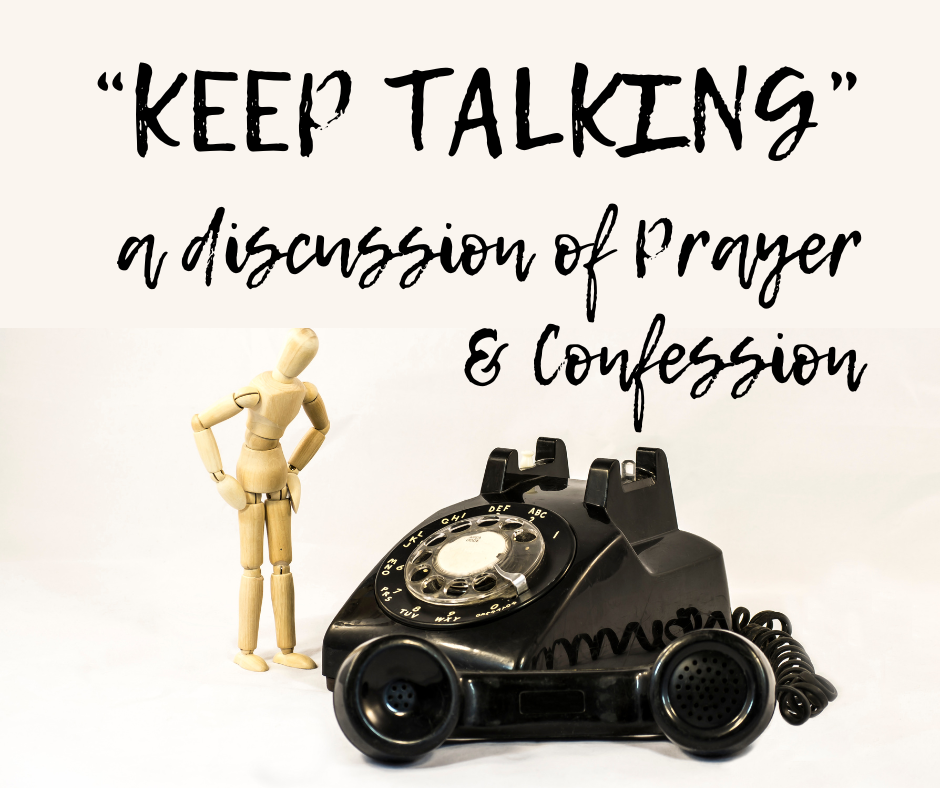Why do we say that? – “Lord-Willing”

Hello! Thanks for joining us in this discussion of things you hear Christians say, but may not realize what they mean. Sometimes, Christians say the darnedest things, but Lord-willing during these videos you’ll get a sense that there’s a lot of beautiful truth behind ordinary phrases.
Did you see what I did there? Let me pat myself on the back for a not-so-subtle segue into our phrase for this talk. Today we’re unpacking some of the truth within the phrase, “Lord-willing.” I hope you hang on with me, because this one gets pretty philosophical. I imagine you’ll have a few unanswered questions when we’re done talking today, and that’s okay.
You may have heard a Christian or two stick a little “Lord-willing” in a sentence. For example, “I’m going to get a new job by the summer, Lord-willing.” Or, “Lord-willing I’ll feel well enough to go on the school ski trip.” What does that mean?
As the Son of God in human flesh, Jesus used this phrase himself. A great example comes from his prayer in the Garden of Gethsemane. Jesus, because he is true God, knew what was about to happen. He was about to be betrayed into the hands of Roman soldiers, and carted off to meet a brutal death. Because he was human as well, this filled Jesus’ heart with stress and anxiety. He prays to God the Father, asking him if there’s any way possible that he wouldn’t have to face brutal death. Listen to how he finishes his prayer:
“My Father, if it is possible, may this cup be taken from me. Yet not as I will, but as you will,” (Matthew 26:39b).
He’s saying, “Don’t do just what I want to do. Do what you want to do, Lord.” That’s what “Lord-willing means.” It’s a kind of shorthand for saying, “May God do whatever he wants.” And what does God want? What is God’s will? To find out, we read the Bible. That’s where we see what God’s will is. So, let’s open up the theological can of worms here just a little bit.
The Bible teaches that, “[God] wants all people to be saved and to come to a knowledge of the truth,” (1 Timothy 2:4). That ultimately is God’s desire. That’s what he wants. God wants you to come to know how much he loves you. How much he has done to forgive you and save you from your sin.
That’s why even though Jesus asked God the Father to take the cup from him, he didn’t. Jesus went to the cross. Jesus died for you. That was God’s will. And he wants you to know about the full and free forgiveness Christ has won for you on that cross.
What about the other events in your life? Well, if God has this big and loving desire for you and your family and your friends to know salvation through Jesus Christ, doesn’t that mean you can trust the rest of what he allows or doesn’t allow to happen to be okay?
If you had good parents growing up, you could trust them. You didn’t always understand why they didn’t let you go to McDonald’s, why they didn’t let you sleep over at a certain friend’s house. Even though you got upset, you eventually came to understand that they have good reasons for the way they treated you. They knew something you didn’t. They had in mind the nutritional value of McDonald’s and wanted to make sure you got a better meal. They knew something about your friend’s family that meant letting you sleep over there would not have been safe.
It’s when you have bad parents or guardians in authority over you, who can’t be trusted to do what’s in your best interests, that life is miserable. If you’ve been there, I want to say I am so sorry. I also want to assure you – God is not like that. He is not an abusive parent. He loves you so much that he stopped at nothing to forgive your sins and show you his love with the cross. He can be trusted. He is in control, and he most certainly has your best interests in mind.
That’s why the Bible gives us this encouragement:
You ought to say, “If it is the Lord’s will, we will live and do this or that,” (James 4:15).
God can be trusted. If he allows something to happen, he has his reasons for it. If he doesn’t allow something to happen, there must be good reasons for that too. Since God is good, we can trust him. We can say, “Lord-willing” and always allow for the possibility that God might have something different in mind than just our plans for ourselves.
Since God is smarter than us, and has been around for much longer than us (for he is eternal), it’s alright if we don’t always understand what his good reasons for allowing things to happen or not happen may be. But that’s okay. He is God. I am not. We can trust his love. We can trust his will.
So, let’s you and I pray with honesty and sincerity the words Jesus taught us to pray in what has been called “the Lord’s prayer.” In it, Jesus taught us to say:
“your kingdom come,
your will be done,
on earth as it is in heaven,” (Matthew 6:10).
God, your will, not mine, be done. Amen.
Do you have questions, thoughts, or comments after our talk today? Please get in touch with us, we’d love to keep the dialogue going. Lord-willing, we’ll speak again soon!
Watch the video:





About Trinity Church
Welcome to Trinity Lutheran Church of El Paso, Texas. We are members of the Wisconsin Evangelical Lutheran Synod (WELS). Our teachings are solidly based in the Bible. We would love to worship with you this Sunday!
Our Mission
The mission of Trinity Lutheran Church is to grow together in the true Word of God, serve our community, and share God’s love.
Service Times
9:00am Bible Study
10:15am Worship Service
Contact Info
(915) 755-7259
office@trinityelpaso.org
3800 Hondo Pass, El Paso, TX 79904
All Rights Reserved | Trinity Luthern Church El Paso
Designed by Nesh Design and Media


